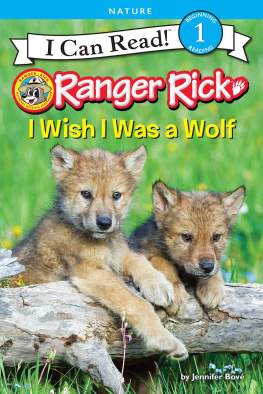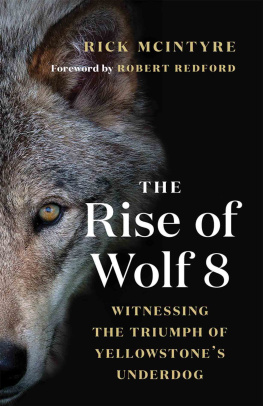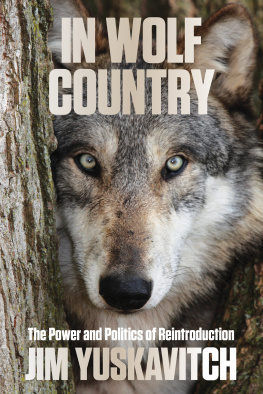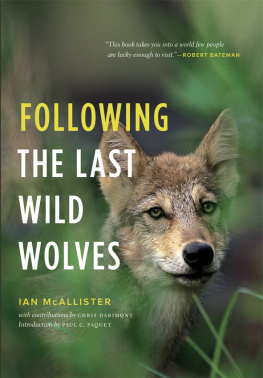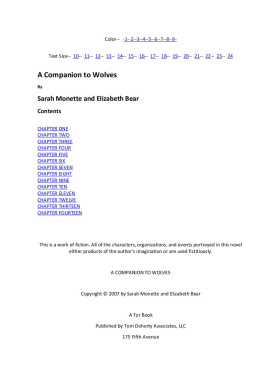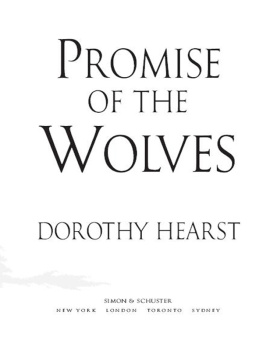


Copyright 2014, 2018 by Ted B. Lyon and Will N. Graves
First Skyhorse Publishing edition 2018
All rights reserved. No part of this book may be reproduced in any manner without the express written consent of the publisher, except in the case of brief excerpts in critical reviews or articles. All inquiries should be addressed to Skyhorse Publishing, 307 West 36th Street, 11th Floor, New York, NY 10018.
Skyhorse Publishing books may be purchased in bulk at special discounts for sales promotion, corporate gifts, fund-raising, or educational purposes. Special editions can also be created to specifications. For details, contact the Special Sales Department, Skyhorse Publishing, 307 West 36th Street, 11th Floor, New York, NY 10018 or .
Skyhorse and Skyhorse Publishing are registered trademarks of Skyhorse Publishing, Inc., a Delaware corporation.
Visit our website at www.skyhorsepublishing.com.
10 9 8 7 6 5 4 3 2 1
Library of Congress Cataloging-in-Publication Data
Names: Lyon, Ted B., author. | Graves, Will N., author.
Title: The real wolf: the science, politics, and economics of coexisting with wolves in modern times / Ted B. Lyon and Will N. Graves; with contributions by Rob Arnaud, Dr. Arthur Bergerud, Karen Budd-Falen, Jess Carey, Dr. Matthew A. Cronin, Dr. Valerius Geist, Bruce Mahler, Don Peay, Laura Schneberger, and Heather Smith-Thomas.
Description: Second edition. | New York, NY: Skyhorse Publishing, 2018. | Includes bibliographical references.
Identifiers: LCCN 2017038432 | ISBN 9781510719613 (pbk.)
Subjects: LCSH: Human-wolf encountersUnited States. |
WolvesReintroductionUnited States. | WolvesControlUnited States.
Classification: LCC QL737.C22 L96 2018 | DDC 599.773dc23
LC record available at https://lccn.loc.gov/2017038432
Cover design by Tom Lau
Front cover photo credit: iStockphoto
Print ISBN: 978-1-5107-1961-3
Ebook ISBN: 978-1-5107-1963-7
Printed in the United States of America
Contents
by Idaho Gov. C. L. Butch Otter
by Ted B. Lyon
by Will N. Graves
by Ted B. Lyon
by Ted B. Lyon
by Ted B. Lyon
by Ted B. Lyon
by Will N. Graves
by Valerius Geist, PhD
by Don Peay
by Arthur T. Bergerud, PhD
by Heather Smith-Thomas
by Rob Arnaud and Ted B. Lyon
by Laura Schneberger
by Jess Carey
by Ted B. Lyon
by Will N. Graves
by Karen Budd-Falen and Joshua Tolin
by Ted B. Lyon
by Ted B. Lyon
by Ted B. Lyon
by Matthew A. Cronin, PhD
by Rob Arnaud and Ted B. Lyon
by Ted B. Lyon
Foreword
by Idaho Governor C. L. Butch Otter
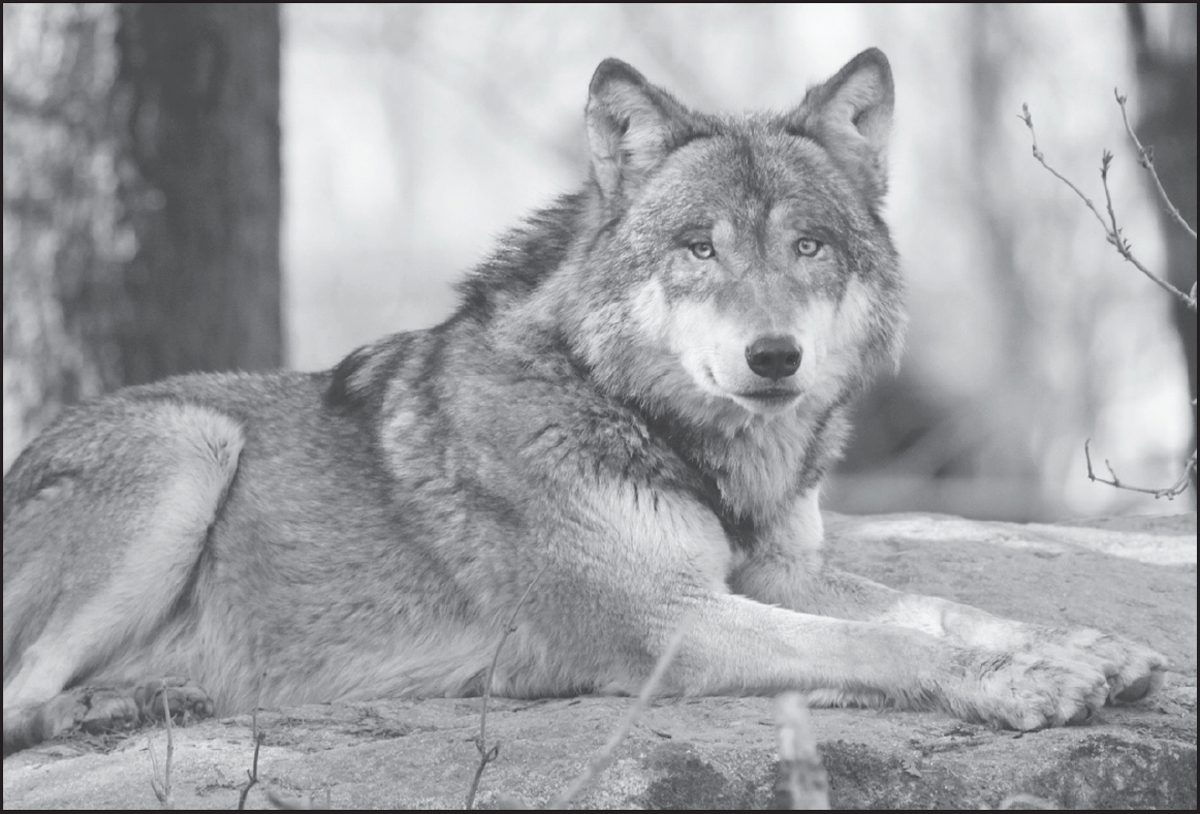
Photo credit Karl Umbriaco/Shutterstock.com
For more than twenty years now I have had a front-row seat to one of the worst natural resources policies ever inflicted upon the West.
I was Idahos lieutenant governor in the mid-1990s whenlike a shotgun weddingCanadian gray wolves were reintroduced to the Idaho backcountry by the US Fish and Wildlife Service, expressly against our wishes as a state. I was a member of Congress in the early years of the twenty-first century as those transplanted predators grew into voracious packs that began ravaging our elk herds and terrorizing our livestock. So when I became Idahos governor in 2007, one of my top priorities was working with our congressional delegation, sportsmen, ranchers, and many othersincluding Ted Lyonto overcome the legal hurdles set up by environmental extremists and activist judges to states wresting management of these big marauders from federal bureaucrats.
Teds book, The Real Wolf, does a compelling job of chronicling that process, and why it remains so important to those of usno matter our political affiliationwho care deeply about states rights and responsible stewardship of our public lands, wildlife, and other resources. The hard-won experience of too often being at the mercy of that federal fiat we call the Endangered Species Act (ESA) has taught us the value of on-the-ground collaboration, consensus building, and counting on the real-world perspectives of those who live with the outcomes of our public policies.
There have been few issues during my forty years in public life that have provoked the raw passions of so many people from around the world as the debate over wolves.
As Idaho sought to at least control the carnage, I was deluged with some of the nastiest, most disparaging, and truly hateful letters, emails, and phone calls from well-meaning but badly misinformed folks. Most saw wolves only as big, beautiful dogsharmlessly pursuing their majestic lives in the trackless wild. They argued that wolves are an essential and misunderstood part of the Rocky Mountain ecosystem, and we owe it to our western heritage to enable them to once again roam freely in the Idaho wilderness.
The problem is that wolves dont stay put. Their enormous range, high reproductive rate, and insatiable hunger inevitably draw them out of the backcountry into the areas of men. As their numbers in Idaho spiraled far beyond expectations, so did the conflicts, and so did my determination to manage wolves as we do any other specieswith an eye toward the bigger picture of a balanced ecosystem that includes man.
Getting to that point was challenging. While my state officially met the federal ESA recovery objectives for wolves in Idaho in 2002, we would not see final delisting for nearly a decade. And the conflicts continued to increase. Depredation grew, and state wildlife officials began noticing significant declines in Idaho deer and elk herds. In many of those areas, wolves were found to be a primary limiting factor for failure to achieve big-game population goals. That was simply unacceptable, so my staff and I continued working to wrench more management flexibility from the federal governments clutches.
We eventually won a few concessions under the governments non-essential, experimental population rules, allowing us to move or kill offending wolves. That was welcome, but full delisting was the real goal. However, frivolous legal actions by activist groups delayed those efforts despite the ESAs stated goal of transferring management authority to states once a species has been deemed biologically recovered.
Ultimatelyand after consistent pestering from many others and meCongress got fed up with the delay tactics and took the unprecedented step of legislatively delisting wolves in Idaho and Montana. If not for that action, wolf management in Idaho still would be up to a pack of federal bureaucrats.
Im grateful to Ted and the many good people who feel a strong affinity for Idaho, Montana, and the other states where wolves are yet another government-imposed challenge to overcome. But our friends in Wyoming continue struggling to gain state control over wolves, and wildlife managers in Arizona and New Mexico cope with deep mistrust of federal wolf experts. Officials in the state of Washington, where some Idaho wolves have migrated, are dealing with angry public outcry and even death threats for merely testing a plan for removing problem wolvesa plan which was agreed upon by a diverse collaborative group of local stakeholders.
Next page


